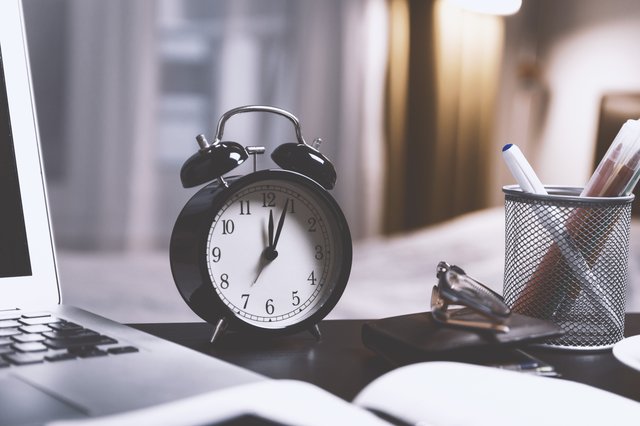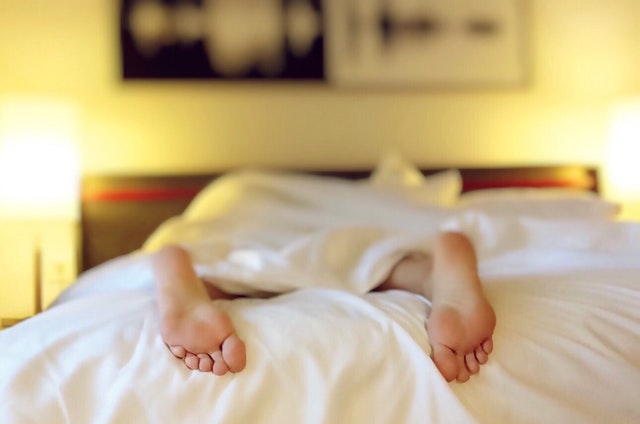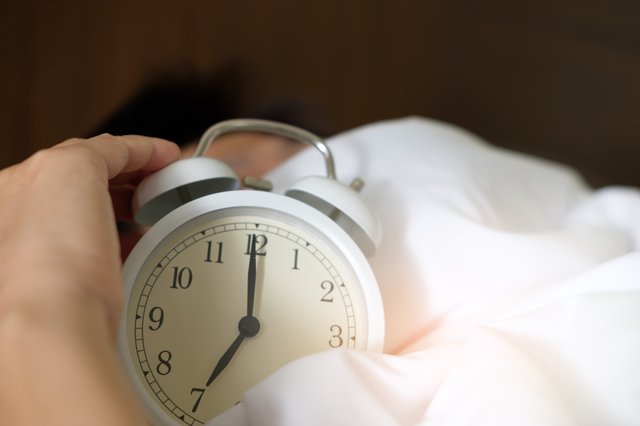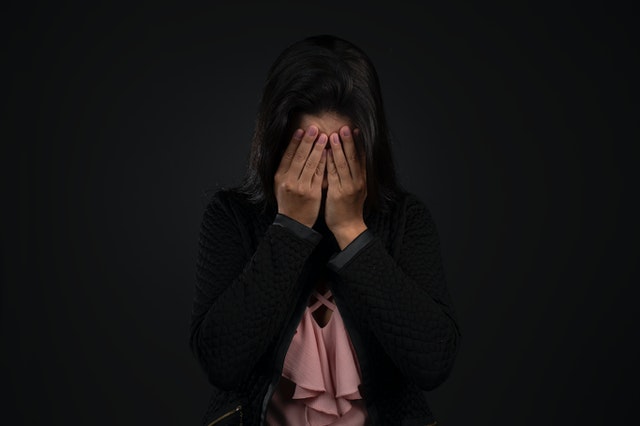Changing clocks and changing mood
Changing clocks and your mental well-being
There has been a lot of debate about Daylight Savings Time in recent years. Daylight Savings Time (DST) was first brought into effect as an energy saving measure in 1895. It works by moving the clocks forward by one hour during the summer months in order to give an extra hour of daylight at the end of the workday.
The downside is that when we return to standard time after the summer, many people feel more stressed, more tired, more anxious and less productive. It’s also a well known fact that traffic accidents spike after the time change in spring. I definitely feel off every time the clocks change.
It doesn’t seem like it should be a big deal because it's only 1 hour.
But it seems to affect literally everything. My body, my mind, and my mood. I feel super groggy at work. Driving becomes a little more dangerous than usual. And I just feel generally not like my usual self. The best way to describe it is I feel like I just partied for a few nights and did not get any sleep.
“I don’t mind going back to daylight saving time. With inflation, the hour will be the only thing I've saved all year.”
- Victor Borge
So let’s have a look at what’s behind feeling off when the clocks change and how deep the consequences go.
Clocks versus the sun
The time change was invented because it was supposed to have positive social and economic effects. Bending nature to our own social schedule so that we can be more energy efficient sure sounds like a good plan. But what are the side effects?
The problem starts and ends with the fact that no matter what our clocks say, our internal clocks seem to be linked to something more powerful. Studies have found time after time that our bodies simply do not adjust to the time change. Even after a few months have gone by. On a deeper level, our biological clocks simply follow the sun’s rhythm. We never really adopt the social time change that we are imposing.

Our bodies have their own internal clocks. And it seems that these clocks are naturally linked to the sun. One hormone that runs this internal clock is cortisol. It helps set our circadian rhythm internally. In the morning, as the sun comes up, our body starts producing cortisol as it prepares to transition out of sleep. Cortisol levels help us become alert and awake to start our day.
Studies have shown that this release of cortisol stays linked to the sun’s activity no matter what our arbitrary clocks say. In short, our body's rhythm is linked to something more powerful and innate than our clocks. And this rhythm does not adjust as we change the clocks.
This means that the artificial changes we make in our work and life routine only end up disrupting our naturally set circadian rhythms that follow the sun. Considering that, it’s not difficult to understand why we feel off when the clocks change.
Consequences when clocks change
Knowing that on a biological level, we follow the time the sun sets, what happens when we try to change our routine? One major effect that most of us can attest to is feeling tired. When our clocks “spring forward” in the spring, we give up an hour of sleep during that night. This change can leave us feeling tired, disoriented and lethargic, leading to an increase in traffic and workplace accidents.
Many other serious consequences have also been noted:

It’s interesting to note that when our sleep and work patterns change that our eating rhythms also try to adjust. This can lead to a disruption of our eating schedule which can be a hard adjustment to make. Similarly to our sleep, our hunger is determined by many internal factors that have their own established rhythms. Disrupting that rhythm can lead to more unpredictable sugar levels and even weight gain.
Will the clocks stop changing?
One positive note is that many countries have started the process to move permanently to DST. Most of the European Union plans to make the change by 2021. Parts of Canada had firm plans to make the move by 2020, but they were waiting on their partners to the south to stay in line.
The plan still requires approval from the federal government there, and is not likely to be a top priority for a while longer. Because approval wasn’t reached in time, unfortunately Canada is seeing yet another time change this November 2020.

It definitely seems that eliminating the annual time changes would improve our quality of life. It could also help with sleep problems centered around time change. So, hopefully we can look forward to no more daylight savings very soon.
What can you do to feel better?
While we wait for governments around the world to catch up with popular opinion about DST, there are a few things you can do to help yourself feel better during the shift.

Live by the sun’s rhythm instead of clocks
If you are lucky enough to set your own schedule, live by the sun’s rhythm. Because our bodies seem to be naturally linked to the sun’s schedule, try to align yourself with it as much as possible. This might be more of a reality if you are retired or work for yourself at home. If you follow when you are naturally tired and when you naturally wake up, it can help a lot with a general feeling of well-being.
Daylight lamps
There are certain cues that help affect your rhythm artificially, and one of them is blue light. When your eyes see blue light, it sends a message to your brain that it must be daytime, and that you should be feeling awake. This is good to use to your advantage if you use “daylight lamps” to help yourself wake up in the morning.
There are specific non-UV lamps that emit blue light to help you feel more wakeful. Place a lamp at your desk, on your treadmill or at your breakfast table to help signal “daytime” to your brain on low-light mornings.
Electronics

While blue light is useful to help you wake up in the morning, it can be really disrupting at night. Many electronics like cell phones and computer screens emit a lot of blue light. When you are exposed to their light close to bedtime, you are sending the wrong message to your brain and it can disrupt your sleep patterns and circadian rhythm. Setting a blue light filter in the evening or avoiding electronics all together close to bedtime can help you avoid this problem.
Consistency
Another easy way to help yourself is to have a consistent sleep pattern. Regardless of how long you sleep, research shows that having the same bed and wake-time each day helps your body predict and manage sleep better. This means that it’s better for your body to keep the same schedule even on weekends if you want ideal results.

Self-Care when the clocks change
Taking a bath might not be the first thing that comes to mind when you think of the time change. But taking better care of yourself during times of change will always help lighten the burden on the body. When the time changes hit, carve out some extra time to make sure you can cook a nutritious meal, have a long bath or go for a relaxing walk. Self-care always gives us a little more capacity to handle stress and brings down our overall stress and exhaustion levels.
The Takeaway
Changing clocks can throw us for a loop. Moving the clocks forward or backward messes with our natural rhythms and we end up feeling stressed and exhausted. DST has long outlived its usefulness, but legislative changes are needed to remove “clock changing” from our annual routines. And that could take some time.

In the meantime, it’s important to take care of yourself, especially when the clocks move forward or backward. You may feel more rundown during these times. You may have trouble concentrating because you feel tired. And you may find your sleeping and eating schedule turned upside down.
Think of self-care during these times.
Be sure to spend some extra time on getting rest and relaxation during these times. Giving your body better nutrition will help you be more resilient during clock changes. Adjusting your rhythm to your natural sun rhythm can also be helpful, although I realize that’s not possible for everyone.
Most importantly, the silver lining is that daylight savings might soon be something for the history books
Sources
https://pubmed.ncbi.nlm.nih.gov/24156521/
https://en.wikipedia.org/wiki/Daylight_saving_time
https://bc.ctvnews.ca/will-this-be-the-last-time-b-c-springs-forward-1.4843691
https://www.psychologytoday.com/ca/blog/two-takes-depression/201811/daylight-saving-time-and-depression
https://www.ncbi.nlm.nih.gov/pmc/articles/PMC7205184/
https://vancouverisland.ctvnews.ca/b-c-to-switch-to-permanent-daylight-saving-time-but-not-this-year-1.5110970
https://www.insider.com/europe-to-get-rid-of-daylight-saving-time-2019-3
